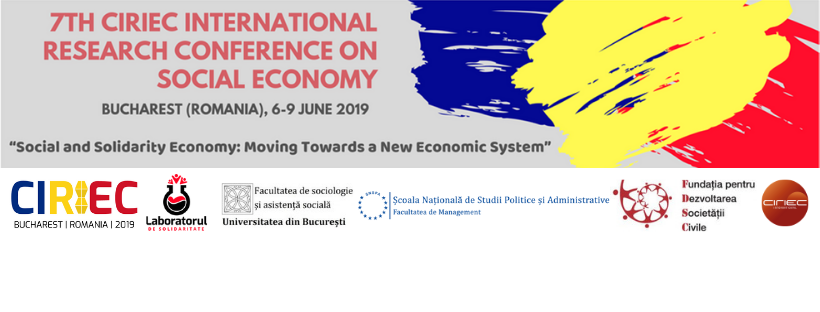 Marie J. Bouchard
Marie J. Bouchard
 Marie J. Bouchard is a full professor in social economy at the Université du Québec à Montréal and President the International Scientific Commission on Social and Cooperative Economy of CIRIEC. Member of the Center for Research on Social Innovations (CRISES), where she runs the stream Collectives Enterprises, she also chairs the COPAC and International Labour Organization (ILO) Working Group on Cooperative Statistics. She was chairholder of the Canada Research Chair on Social Economy (2003-2013) and co-director-university of the Community Habitat group of the Community-University Research Alliance (CURA) on Social Economy (1999-2010). She participated to the Co-creation Steering Group for the Canadian government Strategy on Social Finance and Social innovation (2017-2018). She currently is the scientific leader of a knowledge transfer project on social impacts measurement with Territoires innovants en économie sociale et solidaire (TIESS).
Marie J. Bouchard is a full professor in social economy at the Université du Québec à Montréal and President the International Scientific Commission on Social and Cooperative Economy of CIRIEC. Member of the Center for Research on Social Innovations (CRISES), where she runs the stream Collectives Enterprises, she also chairs the COPAC and International Labour Organization (ILO) Working Group on Cooperative Statistics. She was chairholder of the Canada Research Chair on Social Economy (2003-2013) and co-director-university of the Community Habitat group of the Community-University Research Alliance (CURA) on Social Economy (1999-2010). She participated to the Co-creation Steering Group for the Canadian government Strategy on Social Finance and Social innovation (2017-2018). She currently is the scientific leader of a knowledge transfer project on social impacts measurement with Territoires innovants en économie sociale et solidaire (TIESS).
José Luis Monzon Campos
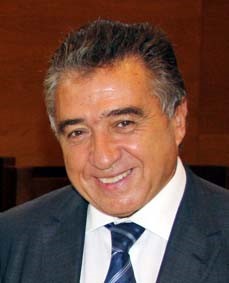 Executive Director of CIRIEC-España and President of the Scientific Commission of CIRIEC-España (Spain). Professor of Applied Economics at the University of Valencia, José Luis Monzón Campos is the current Executive Director of CIRIEC-España. Member of the editorial boards of several Spanish and international journals, he is also a founding member of FUNDIBES and NOVAFEINA, a member of IUDESCOOP and Director of the Spanish and Ibero-American Observatory of Employment and Social and Cooperative Economy (OIBESCOOP). He has been Director of the Valencia School of Business Studies, President of CIRIEC International and its International Scientific Commission “Social and Cooperative Economy” and has directed several Spanish and international research projects on the social and cooperative economy, vocational training and on the labour market. José Luis Monzón Campos has worked as an expert for the European Commission and the European Economic and Social Committee. He is the author of numerous articles and books on the social economy, notably in the European Union and the satellite accounts of the social economy.
Executive Director of CIRIEC-España and President of the Scientific Commission of CIRIEC-España (Spain). Professor of Applied Economics at the University of Valencia, José Luis Monzón Campos is the current Executive Director of CIRIEC-España. Member of the editorial boards of several Spanish and international journals, he is also a founding member of FUNDIBES and NOVAFEINA, a member of IUDESCOOP and Director of the Spanish and Ibero-American Observatory of Employment and Social and Cooperative Economy (OIBESCOOP). He has been Director of the Valencia School of Business Studies, President of CIRIEC International and its International Scientific Commission “Social and Cooperative Economy” and has directed several Spanish and international research projects on the social and cooperative economy, vocational training and on the labour market. José Luis Monzón Campos has worked as an expert for the European Commission and the European Economic and Social Committee. He is the author of numerous articles and books on the social economy, notably in the European Union and the satellite accounts of the social economy.
Carlo Borzaga
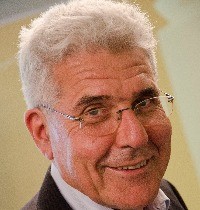 Professor of Economic Policy at the University of Trento, Faculty of Economics since 2001. From 2003 to 2006 Dean of the Faculty of Economics. At present he chairs Euricse – European Research Institute on Cooperative and Social Enterprises – and the master programme on Management of Social Enterprises (GIS) at the University of Trento. He is a founding member of the network EMES (The Emergence of Social Enterprise in Europe) and chairman of IRIS Network (an Italian network of Italian research centres on social enterprises). He is editor of the journal Impresa Sociale and member of the scientific committees of several journals, among them Economia e Lavoro, Revue des études coopératives mutualistes et associatives, Social Enterprise Journal. He collaborates with several national (Ministero del Lavoro, Ministero della Famiglia e della Solidarietà Sociale, ISFOL, ISTAT Fondazione per il Volontariato, Provincia Autonoma di Trento).
Professor of Economic Policy at the University of Trento, Faculty of Economics since 2001. From 2003 to 2006 Dean of the Faculty of Economics. At present he chairs Euricse – European Research Institute on Cooperative and Social Enterprises – and the master programme on Management of Social Enterprises (GIS) at the University of Trento. He is a founding member of the network EMES (The Emergence of Social Enterprise in Europe) and chairman of IRIS Network (an Italian network of Italian research centres on social enterprises). He is editor of the journal Impresa Sociale and member of the scientific committees of several journals, among them Economia e Lavoro, Revue des études coopératives mutualistes et associatives, Social Enterprise Journal. He collaborates with several national (Ministero del Lavoro, Ministero della Famiglia e della Solidarietà Sociale, ISFOL, ISTAT Fondazione per il Volontariato, Provincia Autonoma di Trento).
Simel Esim
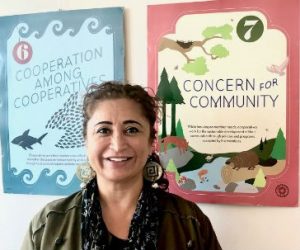 Simel Esim holds a BA in political science, an MA in International Economics and Middle East Studies and a Ph.D. in economics with a concentration in development economics. Upon completing her studies, Simel Esim worked at the World Bank, Development Alternatives, Inc. and the International Center for Research on Women in Washington, D.C. on formalizing the informal economy, women’s economic empowerment and labour migration among others. Between 2004 and 2012, Simel Esim was a Senior Technical Specialist in the International Labour Organization’s Regional Office for Arab States in Beirut. Currently she is the Manager of the Cooperatives Unit at the International Labour Organization in Geneva. The unit, which has been in existence since 1920, serves the International Labour Organization constituents on issues related to cooperatives and other social and solidarity economy enterprises through research, policy advice, training and development cooperation guided by the International Labour Organization Recommendation on the Promotion of Cooperatives, 2002 (R.193).
Simel Esim holds a BA in political science, an MA in International Economics and Middle East Studies and a Ph.D. in economics with a concentration in development economics. Upon completing her studies, Simel Esim worked at the World Bank, Development Alternatives, Inc. and the International Center for Research on Women in Washington, D.C. on formalizing the informal economy, women’s economic empowerment and labour migration among others. Between 2004 and 2012, Simel Esim was a Senior Technical Specialist in the International Labour Organization’s Regional Office for Arab States in Beirut. Currently she is the Manager of the Cooperatives Unit at the International Labour Organization in Geneva. The unit, which has been in existence since 1920, serves the International Labour Organization constituents on issues related to cooperatives and other social and solidarity economy enterprises through research, policy advice, training and development cooperation guided by the International Labour Organization Recommendation on the Promotion of Cooperatives, 2002 (R.193).
Ariel Guarco
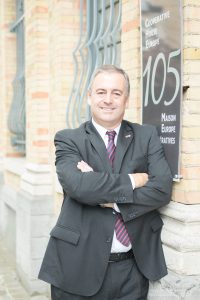 At the 2017 general assembly, in Kuala Lumpur (Malaysia), the members of the International Cooperative Alliance elected Ariel Guarco as their president. He is a cooperative leader that has undertaken a cooperative movement development process in his country, Argentina, and has built strong bonds with the rest of the cooperative movement in the American continent by becoming Board Member of Cooperatives of the Americas. A man trained into the public services cooperative movement, and specially the electric cooperative movement, during the course of his life he has moved along all institutional positions until today, when he runs the Presidency of COOPERAR, apex organization in the Argentine cooperative movement, since 2011. He started in the cooperative movement over 20 years ago in Coronel Pringles Electric Cooperative, his home town, holding different positions until the presidency, which he holds since 2007. In 2008 he was elected President of the Federation of Electricity and Public Services Cooperatives of Buenos Aires Province– FEDECOBA –, a position he still runs nowadays. He is Member of the International Co-operative Alliance’s Global Board since 2013 and Deputy Vice-President of Cooperatives of the Americas from 2014 to 2018. He is the author of the book “The Argentine Cooperative Movement – A hopeful Look into the Future”, and regular speaker in different Universities, Seminars, Conferences and Congresses related to the Solidary Economy sector both in his home country and in foreign countries.
At the 2017 general assembly, in Kuala Lumpur (Malaysia), the members of the International Cooperative Alliance elected Ariel Guarco as their president. He is a cooperative leader that has undertaken a cooperative movement development process in his country, Argentina, and has built strong bonds with the rest of the cooperative movement in the American continent by becoming Board Member of Cooperatives of the Americas. A man trained into the public services cooperative movement, and specially the electric cooperative movement, during the course of his life he has moved along all institutional positions until today, when he runs the Presidency of COOPERAR, apex organization in the Argentine cooperative movement, since 2011. He started in the cooperative movement over 20 years ago in Coronel Pringles Electric Cooperative, his home town, holding different positions until the presidency, which he holds since 2007. In 2008 he was elected President of the Federation of Electricity and Public Services Cooperatives of Buenos Aires Province– FEDECOBA –, a position he still runs nowadays. He is Member of the International Co-operative Alliance’s Global Board since 2013 and Deputy Vice-President of Cooperatives of the Americas from 2014 to 2018. He is the author of the book “The Argentine Cooperative Movement – A hopeful Look into the Future”, and regular speaker in different Universities, Seminars, Conferences and Congresses related to the Solidary Economy sector both in his home country and in foreign countries.
Ilcheong Yi
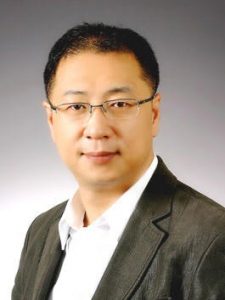 Ilcheong YI is Senior Research Coordinator in the Social Policy and Development Programme and in the Social Dimensions of Sustainable Development Programme at UNRISD. He joined UNRISD in October 2008. Born in the Republic of Korea, he was trained as a political scientist (B.A. and M.A. from the Department of Political Science, Seoul National University, Korea) and as a social policy analyst (Ph. D. from Oxford University, UK). His specialization is in the issues of poverty, social policy, labour policy, social economy, and historical analysis of the economic and social development process. Prior to joining UNRISD, Ilcheong was Associate Professor at Kyushu University, Japan (2004-2008), Korea Foundation Visiting Professor in the Department of East Asian Studies, University of Malaya, Malaysia (2003-2004), and Visiting Research Fellow at the Stein Rokkan Centre, University of Bergen, Norway (2002-2003). He has fulfilled a number of consultant, field researcher and project development roles for international and national organizations including the ILO, UNRISD, JBIC and KOICA.
Ilcheong YI is Senior Research Coordinator in the Social Policy and Development Programme and in the Social Dimensions of Sustainable Development Programme at UNRISD. He joined UNRISD in October 2008. Born in the Republic of Korea, he was trained as a political scientist (B.A. and M.A. from the Department of Political Science, Seoul National University, Korea) and as a social policy analyst (Ph. D. from Oxford University, UK). His specialization is in the issues of poverty, social policy, labour policy, social economy, and historical analysis of the economic and social development process. Prior to joining UNRISD, Ilcheong was Associate Professor at Kyushu University, Japan (2004-2008), Korea Foundation Visiting Professor in the Department of East Asian Studies, University of Malaya, Malaysia (2003-2004), and Visiting Research Fellow at the Stein Rokkan Centre, University of Bergen, Norway (2002-2003). He has fulfilled a number of consultant, field researcher and project development roles for international and national organizations including the ILO, UNRISD, JBIC and KOICA.
Alain Coheur
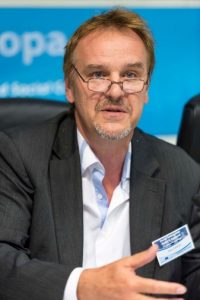 Alain Coheur studied at the Faculty of Medicine, at Public Health School (specialization in hospital management) and at the Faculty of Social and Economic Sciences, University of Liege. He started his career at the University Hospital of Liege. In 1991, he joined the Belgian National Union of Socialist Mutual Health Funds (research department). He took part in the management of the Belgian healthcare system by being a member of the Insurance Committee of the National Institute for Health and Disability Insurance and in the National Council for hospitals of the Ministry of Public Health. Since 1997, he coordinates different crossborder healthcare projects between Belgium, France, The Netherlands, Germany and Luxemburg financed by the European funds, Interreg. Between 1998 and 2002, he was Project Manager at the International Association of Mutual Health Funds (AIM), still now a member of the Board of Directors, and from June 2017 new Treasurer. In 2002, he came back to the Belgian National Union of Socialist Mutual Health Funds, Solidaris, as Director for European and International Affairs. Since 2004, he is a Member of the bureau of the International Social Security Association (ISSA) and vice-chairman of the Technical Commission on Mutual Benefit Societies. Between 2007 and 2016, he was President of the Belgian Non-Governmental Organisation “Solsoc” and in 2008, elected as President of Social Economy Europe (SEE) until 2015, currently he is Vice-President of Social Economy Europe. Since 2009 he is vice-president of Eudcation and Solidarity Network. Since 2013 he is a member of the board of directors of the Belgian development Agency (ENABEL). Between 2014 and 2018, he was member of the European Commission Expert Group on social entrepreneurship (GECES). In 2014 he became member of the “Council Wallonia Brussels for the International Cooperation” and since September 2017, new President. Since 2015 he is a member of the European Economic and Social Committee (EESC) and co-spokesperson of its Social Economy Category Group. Since 2018 he is a member of the Board of directors of CIRIEC (Belgian section and International).
Alain Coheur studied at the Faculty of Medicine, at Public Health School (specialization in hospital management) and at the Faculty of Social and Economic Sciences, University of Liege. He started his career at the University Hospital of Liege. In 1991, he joined the Belgian National Union of Socialist Mutual Health Funds (research department). He took part in the management of the Belgian healthcare system by being a member of the Insurance Committee of the National Institute for Health and Disability Insurance and in the National Council for hospitals of the Ministry of Public Health. Since 1997, he coordinates different crossborder healthcare projects between Belgium, France, The Netherlands, Germany and Luxemburg financed by the European funds, Interreg. Between 1998 and 2002, he was Project Manager at the International Association of Mutual Health Funds (AIM), still now a member of the Board of Directors, and from June 2017 new Treasurer. In 2002, he came back to the Belgian National Union of Socialist Mutual Health Funds, Solidaris, as Director for European and International Affairs. Since 2004, he is a Member of the bureau of the International Social Security Association (ISSA) and vice-chairman of the Technical Commission on Mutual Benefit Societies. Between 2007 and 2016, he was President of the Belgian Non-Governmental Organisation “Solsoc” and in 2008, elected as President of Social Economy Europe (SEE) until 2015, currently he is Vice-President of Social Economy Europe. Since 2009 he is vice-president of Eudcation and Solidarity Network. Since 2013 he is a member of the board of directors of the Belgian development Agency (ENABEL). Between 2014 and 2018, he was member of the European Commission Expert Group on social entrepreneurship (GECES). In 2014 he became member of the “Council Wallonia Brussels for the International Cooperation” and since September 2017, new President. Since 2015 he is a member of the European Economic and Social Committee (EESC) and co-spokesperson of its Social Economy Category Group. Since 2018 he is a member of the Board of directors of CIRIEC (Belgian section and International).
Patrick Develtere
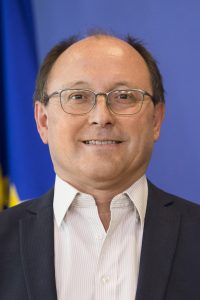
Patrick DEVELTERE is Principal Adviser for European Social Policy at the European Political Strategy Centre (EPSC), the in-house think tank of the European Commission. Before joining the EPSC, he was the President of the Belgian Christian Workers’ Movement (Beweging.net). Beweging.net is one of the largest civil society networks in Belgium with over 4.5 million members and over 250,000 volunteers involved in trade union, mutual society and other civil association activities. Patrick also teaches ‘politics and society in developing countries’ and ‘international development cooperation’ at the University of Leuven, Belgium. Earlier, he was the Director of HIVA, Research Institute for Work and Society of the same university. Patrick has a Ph. D. in Social Sciences and has been a visiting professor at the University of Saskatoon (UoS – Canada), the Université du Québec à Montréal (UQAM – Canada) and the Université de Kinshasa (UNIKIN – DRCongo) among others. From 2010 to 2017 he was a member of the Board of the European Social Observatory. Career Highlights: President, Belgian Christian Workers’ Movement, 2010-2017; Director, HIVA – Research Institute for Work and Society (KU Leuven), 2007-2010. Academic Highlights: PhD in Social Sciences, KU Leuven (Belgium), 1994.
Patrick Klein
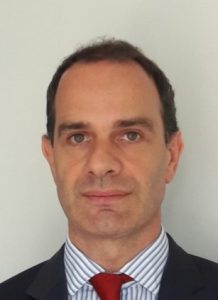 Patrick KLEIN has been working in different and varied positions within European Commission – DG Internal Market, Industry, Entrepreneurship and SMEs (GROW) – “Advanced Technologies, Clusters and Social Economy”. He is currently Head of the Social Economy Team within the Unit “Advanced Technologies, Clusters and Social Economy”. His main activities focus on launching specific actions and projects in order to establish a more relevant ecosystem for the development of social economy enterprises. He also coordinates the European Commission’s expert group “Social Economy and Social Enterprise” which aims to develop public policies in this area. He has previously worked in Access to finance from 2002 to 2011 before joining the European Economic and Social Committee from 2011 to 2014. Patrick has experience in the private sector where he was consultant for Arthur Andersen and Deloitte from 1997 to 2001. He graduated from the College of Europe (Bruges) and from the University of Law and Political Science of Strasbourg.
Patrick KLEIN has been working in different and varied positions within European Commission – DG Internal Market, Industry, Entrepreneurship and SMEs (GROW) – “Advanced Technologies, Clusters and Social Economy”. He is currently Head of the Social Economy Team within the Unit “Advanced Technologies, Clusters and Social Economy”. His main activities focus on launching specific actions and projects in order to establish a more relevant ecosystem for the development of social economy enterprises. He also coordinates the European Commission’s expert group “Social Economy and Social Enterprise” which aims to develop public policies in this area. He has previously worked in Access to finance from 2002 to 2011 before joining the European Economic and Social Committee from 2011 to 2014. Patrick has experience in the private sector where he was consultant for Arthur Andersen and Deloitte from 1997 to 2001. He graduated from the College of Europe (Bruges) and from the University of Law and Political Science of Strasbourg.
Ionut Sibian
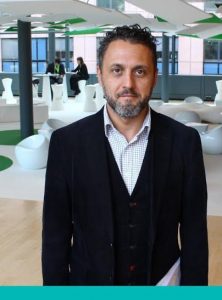 Ionuț Sibian is currently Executive Director of the Civil Society Development Foundation (CSDF), one of the most important and influential NGOs in Romania. In 2010, CSDF founded the Institute of Social Economy, an initiative of CSDF aimed at promoting social economy in Romania. Since Romania became a member of the European Union in January 2007, Ionuț Sibian was elected to represent Romanian NGOs in the European Economic and Social Committee in Brussels. His previous experience includes President of the Romanian Federation of Development NGOs (FOND), Board member of the German Marshall Fund programme – Black Sea Trust and member of various Boards of Romanian and European organisations. Currently, he serves as member of the Orange Foundation Board. He completed his MA in International Relation at the Centre for Euro-Atlantic Studies, University of Bucharest, and a Master’s Program on South East European Studies, supported by the European Union under the Stability Pact at University of Atehns. In 2009 Ionuț Sibian was Marshall memorial Fellow, German Marshall Fund of the US, Washington DC.
Ionuț Sibian is currently Executive Director of the Civil Society Development Foundation (CSDF), one of the most important and influential NGOs in Romania. In 2010, CSDF founded the Institute of Social Economy, an initiative of CSDF aimed at promoting social economy in Romania. Since Romania became a member of the European Union in January 2007, Ionuț Sibian was elected to represent Romanian NGOs in the European Economic and Social Committee in Brussels. His previous experience includes President of the Romanian Federation of Development NGOs (FOND), Board member of the German Marshall Fund programme – Black Sea Trust and member of various Boards of Romanian and European organisations. Currently, he serves as member of the Orange Foundation Board. He completed his MA in International Relation at the Centre for Euro-Atlantic Studies, University of Bucharest, and a Master’s Program on South East European Studies, supported by the European Union under the Stability Pact at University of Atehns. In 2009 Ionuț Sibian was Marshall memorial Fellow, German Marshall Fund of the US, Washington DC.
Mihaela Lambru
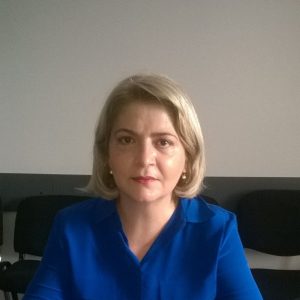 Mihaela Lambru is a Romanian sociologist, full professor at the University of Bucharest, Faculty of Sociology and Social Work, were she is the coordinator of the Master Program in ”Public Policy and Public Organizations Management” . Currently she teaches courses on: Sociology of Public Organizations, Sociology of the Nonprofit Sector, and Social Economy. She is member of EMES – international research network and CIRIEC; she has over 20 years of experience in program management and implementation in third sector development and public sector reform. Her experience includes the design, implementation, management, monitoring and evaluation of development programs; development of training and consulting materials and delivery of technical assistance in nongovernmental sector development and public-private partnerships; and policy research for public organizations in Romania and the region. Highlights of experience include:, ADF Country Director for Romania; Deputy Chief of Party for the ADF Regional Partnership for Democracy(USAID); Trainer and consultant with the Civil Society Development Foundation; Trainer and consultant for UNICEF (Romania, Kirghizstan and Pakistan), ILO, UNDP; she has extensive experience in design and management of EU funded projects.
Mihaela Lambru is a Romanian sociologist, full professor at the University of Bucharest, Faculty of Sociology and Social Work, were she is the coordinator of the Master Program in ”Public Policy and Public Organizations Management” . Currently she teaches courses on: Sociology of Public Organizations, Sociology of the Nonprofit Sector, and Social Economy. She is member of EMES – international research network and CIRIEC; she has over 20 years of experience in program management and implementation in third sector development and public sector reform. Her experience includes the design, implementation, management, monitoring and evaluation of development programs; development of training and consulting materials and delivery of technical assistance in nongovernmental sector development and public-private partnerships; and policy research for public organizations in Romania and the region. Highlights of experience include:, ADF Country Director for Romania; Deputy Chief of Party for the ADF Regional Partnership for Democracy(USAID); Trainer and consultant with the Civil Society Development Foundation; Trainer and consultant for UNICEF (Romania, Kirghizstan and Pakistan), ILO, UNDP; she has extensive experience in design and management of EU funded projects.
Rafael Chaves
 Rafael Chaves is Professor of Economic Policy and Social Economy at the University of Valencia. He obtained a European Doctorate Laureate in Economics in 1995 and was Director of the Research Institute IUDESCOOP for ten years until he took on the position of Director of the Official Doctorate Program on Social Economics at the same university. He was President of the International Scientific Commission on Social and Cooperative Economics of CIRIEC-international. His research has focused on public policies towards the third sector, major figures in the field of social economy, and definitions and theories on the third sector and social economy. He has published in journals such as The Service Industries Journal, Service Business, Management Decision, Annals of Public and Cooperative Economics, CIRIEC-España revista de economia publica social y cooperativa, Economía Industrial, International journal of rural development, Revista de estudios cooperativos, Nouvelles pratiques sociales, Journal of Cooperative Studies and books in editorials as De Boeck and Peterlang. He has extensive experience in leading international and national projects, financed by European Institutions as the European Economic and Social Committee or the DGV of the European Union, the scientific network CIRIEC-International and the Spanish Ministry of Science. He is elected member of GECES – Expert Group on Social Economy and Social Enterprises of the European Commission, as representative of CIRIEC.
Rafael Chaves is Professor of Economic Policy and Social Economy at the University of Valencia. He obtained a European Doctorate Laureate in Economics in 1995 and was Director of the Research Institute IUDESCOOP for ten years until he took on the position of Director of the Official Doctorate Program on Social Economics at the same university. He was President of the International Scientific Commission on Social and Cooperative Economics of CIRIEC-international. His research has focused on public policies towards the third sector, major figures in the field of social economy, and definitions and theories on the third sector and social economy. He has published in journals such as The Service Industries Journal, Service Business, Management Decision, Annals of Public and Cooperative Economics, CIRIEC-España revista de economia publica social y cooperativa, Economía Industrial, International journal of rural development, Revista de estudios cooperativos, Nouvelles pratiques sociales, Journal of Cooperative Studies and books in editorials as De Boeck and Peterlang. He has extensive experience in leading international and national projects, financed by European Institutions as the European Economic and Social Committee or the DGV of the European Union, the scientific network CIRIEC-International and the Spanish Ministry of Science. He is elected member of GECES – Expert Group on Social Economy and Social Enterprises of the European Commission, as representative of CIRIEC.
Adrian Morar
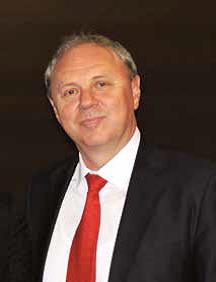 Adrian Morar, the General Manager of the Central Cooperative Bank CREDITCOOP is one of the leading connoisseurs in the field of cooperative banks, with over 35 years experience in the field. In 1984 he graduated from the Faculty of Sciences Economic, Financial-Accounting Section within Babeş-Bolyai University, and since 2010 he holds a Ph.D. in Economics – Finance Banks within the same university. In 2013 he graduated the courses of a Masters in Psychopedagogy within the Babeş-Bolyai University. Mr. Adrian Morar is the author of the book: The Analysis of Financial Activity in the Romanian credit cooperatives and of numerous articles and interviews in profile publications from Romania and abroad. In 2004, the Romania Presidency granted him the National Order “For merit” in the Knight’s degree, to reward merits and contribution brought to the organization, support and development of the credit cooperative movement in Romania. From 2000 until now Mr. Adrian Morar is the General Manager of the Central Cooperative Bank CREDITCOOP and since 2003 he is a member of the European Cooperative Banks Association’s Board of Directors. The organization he is leading is also a member of the European Cooperative Banks Association.
Adrian Morar, the General Manager of the Central Cooperative Bank CREDITCOOP is one of the leading connoisseurs in the field of cooperative banks, with over 35 years experience in the field. In 1984 he graduated from the Faculty of Sciences Economic, Financial-Accounting Section within Babeş-Bolyai University, and since 2010 he holds a Ph.D. in Economics – Finance Banks within the same university. In 2013 he graduated the courses of a Masters in Psychopedagogy within the Babeş-Bolyai University. Mr. Adrian Morar is the author of the book: The Analysis of Financial Activity in the Romanian credit cooperatives and of numerous articles and interviews in profile publications from Romania and abroad. In 2004, the Romania Presidency granted him the National Order “For merit” in the Knight’s degree, to reward merits and contribution brought to the organization, support and development of the credit cooperative movement in Romania. From 2000 until now Mr. Adrian Morar is the General Manager of the Central Cooperative Bank CREDITCOOP and since 2003 he is a member of the European Cooperative Banks Association’s Board of Directors. The organization he is leading is also a member of the European Cooperative Banks Association.
Mircea Dumitru
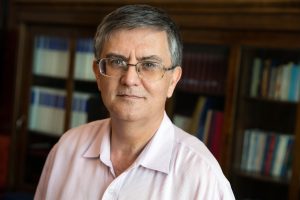 Professor Mircea Dumitru (born 1960) teaches analytic philosophy of language and philosophical logic at the University of Bucharest. He was the Rector of the University of Bucharest between 2011 and 2015. He has been reelected as the Rector of the University of Bucharest for the period 2015-2019. He has been the Minister of Education and Scientific Research from July 2016 until January 2017. He received a PhD in Philosophy/Logic from Tulane University, New Orleans, USA, and a second PhD in Philosophy from the University of Bucharest, Romania. Ha was the President of the European Society of Analytic Philosophy (2011-2014). He is a member of the International Institute of Philosophy (Paris). In 2014 he has been elected a corresponding member of the Romanian Academy. He authored several books and many papers.
Professor Mircea Dumitru (born 1960) teaches analytic philosophy of language and philosophical logic at the University of Bucharest. He was the Rector of the University of Bucharest between 2011 and 2015. He has been reelected as the Rector of the University of Bucharest for the period 2015-2019. He has been the Minister of Education and Scientific Research from July 2016 until January 2017. He received a PhD in Philosophy/Logic from Tulane University, New Orleans, USA, and a second PhD in Philosophy from the University of Bucharest, Romania. Ha was the President of the European Society of Analytic Philosophy (2011-2014). He is a member of the International Institute of Philosophy (Paris). In 2014 he has been elected a corresponding member of the Romanian Academy. He authored several books and many papers.
Adrian Solomon
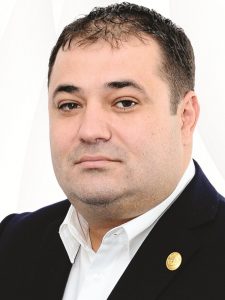 Adrian Solomon is the Chair of the Committee for Labor and Social Protection of the Chamber of Deputies. He was born on 20 September 1977 in Barlad, a town in Romania. In 2001 he graduated from the Faculty of History, Alexandru Ioan Cuza University of Iasi. Within the same faculty, he attended postgraduate studies where he benefited from a Socrates scholarship at the University of Angers, France. In 2010 he graduated the postgraduate courses “Security and Good Governance”, held within the National Defense College. He was a professor of history at the Gheorghe R. Codreanu National College in Barlad. Between 2004 and 2008 he served as Deputy Mayor of Bârlad, and from 2015 he has been a museographer at the Stefan cel Mare County Museum in Vaslui. From 2002 he became a member of the Social Democratic Party, Barlad Municipal Organization. Since 2007 he has served as President of the PSD Barlad Municipal Organization, and since 2013 as the Executive Chairman of the PSD Vaslui County Organization. Since December 2008, he has been a member of the Romanian Parliament and a member of the Committee for Labor and Social Protection of the Chamber of Deputies where he served as secretary, vice-chair and since February 2015 as chair of the committee. He was part of the Delegation of the Romanian Parliament to the Assembly of the Western European Union. Since 2005 he has been a member of the Academia Bârlădeană, a cultural society founded in 1915.
Adrian Solomon is the Chair of the Committee for Labor and Social Protection of the Chamber of Deputies. He was born on 20 September 1977 in Barlad, a town in Romania. In 2001 he graduated from the Faculty of History, Alexandru Ioan Cuza University of Iasi. Within the same faculty, he attended postgraduate studies where he benefited from a Socrates scholarship at the University of Angers, France. In 2010 he graduated the postgraduate courses “Security and Good Governance”, held within the National Defense College. He was a professor of history at the Gheorghe R. Codreanu National College in Barlad. Between 2004 and 2008 he served as Deputy Mayor of Bârlad, and from 2015 he has been a museographer at the Stefan cel Mare County Museum in Vaslui. From 2002 he became a member of the Social Democratic Party, Barlad Municipal Organization. Since 2007 he has served as President of the PSD Barlad Municipal Organization, and since 2013 as the Executive Chairman of the PSD Vaslui County Organization. Since December 2008, he has been a member of the Romanian Parliament and a member of the Committee for Labor and Social Protection of the Chamber of Deputies where he served as secretary, vice-chair and since February 2015 as chair of the committee. He was part of the Delegation of the Romanian Parliament to the Assembly of the Western European Union. Since 2005 he has been a member of the Academia Bârlădeană, a cultural society founded in 1915.
Diana Certan
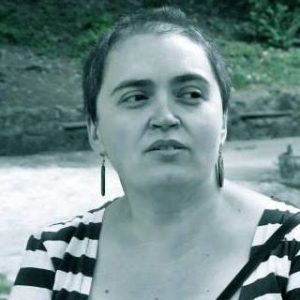 Diana Certan is the Executive Director – Communication and Fundraising of CONCORDIA Humanitarian Organization Romania. She has an educational background in political sciences and community development, holding an Ma in Community Development from Political Science and Public Administration, Babes Bolyai University. Diana has over 16 years’ experience in working in non-governmental organizations (NGO`s), with expertise in NGO management, experiential (learning by doing) education models and programs, fundraising, training delivery, program evaluation. She is a jury member in various national and international NGO`s and social business`s competitions. During 2014 – April 2015 she was a key driver of the IMPACT program (New Horizons Foundation), one of the largest youth social movements in Romania (run in 150 schools in Romania) and the only Romanian educational model replicated in 10 other countries. Since 2011 she is an Aspen Institute Romania Fellow (2011) and was awarded the “Leaders of the Future: Grassroots Education Award, Aspen Institute Romania on behalf of a “Community of Education for Romania” (2011). Diana Certan is also a TED Ed Speaker (Romania) and in 2011 was nominated in Top 100 Romani (Top 100 Romanians that change Romania) organized by Foreign Policy Magazine Romania.
Diana Certan is the Executive Director – Communication and Fundraising of CONCORDIA Humanitarian Organization Romania. She has an educational background in political sciences and community development, holding an Ma in Community Development from Political Science and Public Administration, Babes Bolyai University. Diana has over 16 years’ experience in working in non-governmental organizations (NGO`s), with expertise in NGO management, experiential (learning by doing) education models and programs, fundraising, training delivery, program evaluation. She is a jury member in various national and international NGO`s and social business`s competitions. During 2014 – April 2015 she was a key driver of the IMPACT program (New Horizons Foundation), one of the largest youth social movements in Romania (run in 150 schools in Romania) and the only Romanian educational model replicated in 10 other countries. Since 2011 she is an Aspen Institute Romania Fellow (2011) and was awarded the “Leaders of the Future: Grassroots Education Award, Aspen Institute Romania on behalf of a “Community of Education for Romania” (2011). Diana Certan is also a TED Ed Speaker (Romania) and in 2011 was nominated in Top 100 Romani (Top 100 Romanians that change Romania) organized by Foreign Policy Magazine Romania.
Raluca Ouriaghli
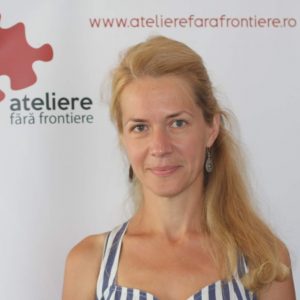 Raluca Ouriaghli si a social entrepreneur with 17 years’ experience in social entrepreneurship, social business
Raluca Ouriaghli si a social entrepreneur with 17 years’ experience in social entrepreneurship, social business
development, lobby and advocacy, NGOs. After working with several international NGOs and a work integration social enterprise in
France, Raluca Ouriaghli launched in 2008 from scratch and managed a work integration social economy non-profit enterprise in Bucharest, Romania, creating jobs for the most disadvantaged target groups (ex offenders, homeless, people with disabilities, health problems and various addictions, excluded Roma, …) contributing to building strong partnership with public authorities and private sector and creating social and economic templates for social economy in Romania. Today, Ateliere Fara Frontiere (Workshops without borders) is a Romanian non profit organization which manages three social enterprises that hired since 2009 more than 250 very disadvantaged people, created 58 jobs out of which 40 stable and quality transition jobs for the conventional labour market. The main social economy activities are reconect – collecting, reusing and recycling WEEE (waste of electrical and electronical equipments) , remesh – collecting outdoors publicity waste – meshes and banners that are transformed into bags and ethical fashion
accessories and decorative objects, bio&co – organic vegetable farm and compost platform, communty development, digital and food solidarity programmes; for instance Ateliere Fara Frontiere refurbished and donated 12000 IT equipments to schools and charities, more than 1000 projects all over the country for youth education and adult integration and more than 150 000 disadvantaged children, youth and adults have been given acces to NTIC. Ateliere Fara Frontiere is member of European and national networks: ENSIE (www.ensie.org), Rreuse (www.rreuse.org) and Rise Romania – the national network of work integration social economy enterprises. Member of the Board of Directors and and Steering Committee of ENSIE network between 2011 and 2014, Raluca Ouriaghli is the Co-Founder and President of RISE Romania since 2012.
Andrew Allimadi
 Andrew Allimadi is currently Coordinator for Cooperative Issues at the United Nations Department of Economic and Social Affairs in New York. He has held several positions in his 17-year career at the United Nations, including Speechwriter to Secretary-General Ban Ki-moon, programme officer for the fourth international conference on the Least Developed Countries and communication officer for the African Trade Policy Center at the Economic Commission for Africa. Prior to joining the UN, Mr Allimadi worked as business news editor at the Financial Times in London; lecturer in economics at the City University in London; and research coordinator for the Danish International Development Agency programme on youth in Uganda. Mr Allimadi holds an MSc in Economics (Lond) and BA Development Studies (UEA).
Andrew Allimadi is currently Coordinator for Cooperative Issues at the United Nations Department of Economic and Social Affairs in New York. He has held several positions in his 17-year career at the United Nations, including Speechwriter to Secretary-General Ban Ki-moon, programme officer for the fourth international conference on the Least Developed Countries and communication officer for the African Trade Policy Center at the Economic Commission for Africa. Prior to joining the UN, Mr Allimadi worked as business news editor at the Financial Times in London; lecturer in economics at the City University in London; and research coordinator for the Danish International Development Agency programme on youth in Uganda. Mr Allimadi holds an MSc in Economics (Lond) and BA Development Studies (UEA).
Gheorghe Chioaru
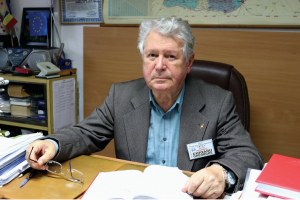 A retired military officer, Gheorghe Chioaru has been first time elected as president of a credit union of the retired CARP in 1999, Omenia CARP of Bucharest district 5. Since than he is its President and CARP Omenia is one of the most successful CARP in Romania with over 50.000 members expanding also to rural communities around Bucharest and developing many social services for the elderly. In 2007 he initiated the first national Federation of CARPs in Romania which groups most of the local organisations, currently gathering around 1,5 million members, and he is its president ever since. In 2014 he was elected board member of Age Europe Platform, and served between 2017-2018 has member of the Economic ad Social Committee in Romania.
A retired military officer, Gheorghe Chioaru has been first time elected as president of a credit union of the retired CARP in 1999, Omenia CARP of Bucharest district 5. Since than he is its President and CARP Omenia is one of the most successful CARP in Romania with over 50.000 members expanding also to rural communities around Bucharest and developing many social services for the elderly. In 2007 he initiated the first national Federation of CARPs in Romania which groups most of the local organisations, currently gathering around 1,5 million members, and he is its president ever since. In 2014 he was elected board member of Age Europe Platform, and served between 2017-2018 has member of the Economic ad Social Committee in Romania.
Ancuța Vameșu
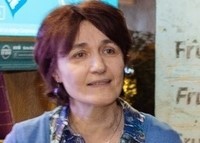 Ancuța has been active in the civil, nongovernmental sector from Romania since the early ’90s. As program manager, consultant, trainer, evaluator she has worked for funders, NGOs, social enterprises, public authorities, designing and supervising support and capacity building programs for civil society, local development and social economy. She gained professional experience working for organizations such as the European Commission Delegation in Romania, the Civil Society Development Foundation where she initiated the Atlas of Social Economy in Romania or European Commission’s Group of experts for Social Enterprises. Ancuta has founded and was the first director of the Civil Society Development Foundation, and initiated in 2013 Laboratorul de Solidaritate a resource center for social economy organizations – credit unions, cooperatives, social enterprises, and is a member of the International Commission of CIRIEC. Ancuta has a degree in Public Administration and post-graduate studies in public policy evaluation and social economy.
Ancuța has been active in the civil, nongovernmental sector from Romania since the early ’90s. As program manager, consultant, trainer, evaluator she has worked for funders, NGOs, social enterprises, public authorities, designing and supervising support and capacity building programs for civil society, local development and social economy. She gained professional experience working for organizations such as the European Commission Delegation in Romania, the Civil Society Development Foundation where she initiated the Atlas of Social Economy in Romania or European Commission’s Group of experts for Social Enterprises. Ancuta has founded and was the first director of the Civil Society Development Foundation, and initiated in 2013 Laboratorul de Solidaritate a resource center for social economy organizations – credit unions, cooperatives, social enterprises, and is a member of the International Commission of CIRIEC. Ancuta has a degree in Public Administration and post-graduate studies in public policy evaluation and social economy.
Víctor Meseguer
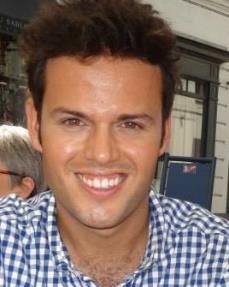 Víctor Meseguer (Spanish national, born in 1990), joined Social Economy Europe, the EU-level representative organization for the Social Economy, in October 2014. He studied a BA in Political Science at the Pompeu Fabra University of Barcelona. In the framework of an ERASMUS exchange, he studied for a year at the King’s College London. Victor holds two master degrees: in Corporate Social Responsibility (University of Murcia) and in European Affairs (European Studies Institute, Université Libre of Brussels).
Víctor Meseguer (Spanish national, born in 1990), joined Social Economy Europe, the EU-level representative organization for the Social Economy, in October 2014. He studied a BA in Political Science at the Pompeu Fabra University of Barcelona. In the framework of an ERASMUS exchange, he studied for a year at the King’s College London. Victor holds two master degrees: in Corporate Social Responsibility (University of Murcia) and in European Affairs (European Studies Institute, Université Libre of Brussels).
Social Economy Europe (SEE) is the EU-level representative organization for the social economy. SEE members include the European organizations of: mutual and cooperative insurers (AMICE); non-profit healthcare players, health mutual and health insurance funds (AIM); industrial and service cooperatives (CECOP-CICOPA Europe); foundations (EFC); associations of general interest (CEDAG); work integration social enterprises (ENSIE); paritarian institutions of social protection (AEIP); ethical banks and financiers (FEBEA); and the European Cities and Regions for the social economy (REVES). SEE also represents the national social economy
organisations of France (ESS-France), Italy (National Third Sector Forum), Portugal (CASES), Spain (CEPES) and Belgium (ConcertES).
